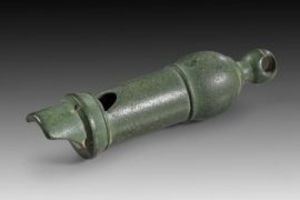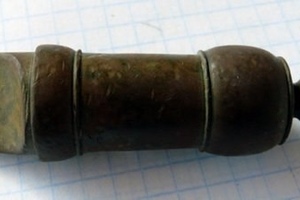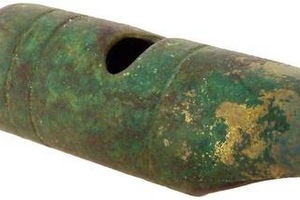Roman Whistle
The Romans actively used signaling instruments such as whistles. In form and purpose, they closely resemble modern ones. They were made from copper-containing materials. It is believed that their main purpose was to convey combat commands in the army, particularly by optiones and centurions.
In the Roman army of the 1st-2nd centuries AD, whistles, like other signaling devices, played an important role in communication and coordination of soldiers' actions. Although there is little direct archaeological evidence of whistle use during this period, historical sources and general knowledge of the Roman army allow us to speculate on how they might have been used.
Command Signals: The Roman army had a complex system of command signals transmitted through various instruments, including tubas and cornua. Whistles could have been used to convey shorter and simpler signals, such as the start or end of a maneuver, an attack signal, or a retreat.
Coordination During Battles: During battles, when noise and chaos made vocal communication difficult, signaling devices were essential. Whistles could have been used by officers to convey commands to small groups of soldiers, ensuring a quick response to changing situations.
Signaling and Alerting: Whistles might also have been used to issue alarms or warnings of an approaching enemy. In camps and guard posts, whistle signals could have conveyed information about potential threats, prompting soldiers to prepare for defense.
Marching Signals: On marches and during movements, whistles could have been used to maintain order and coordinate the movement of troops. They could transmit commands to start moving, stop, or change the route.
Overall, whistles, being simple and effective tools, could have been used in the Roman army for various tasks related to communication and coordination of soldiers' actions in different conditions.





